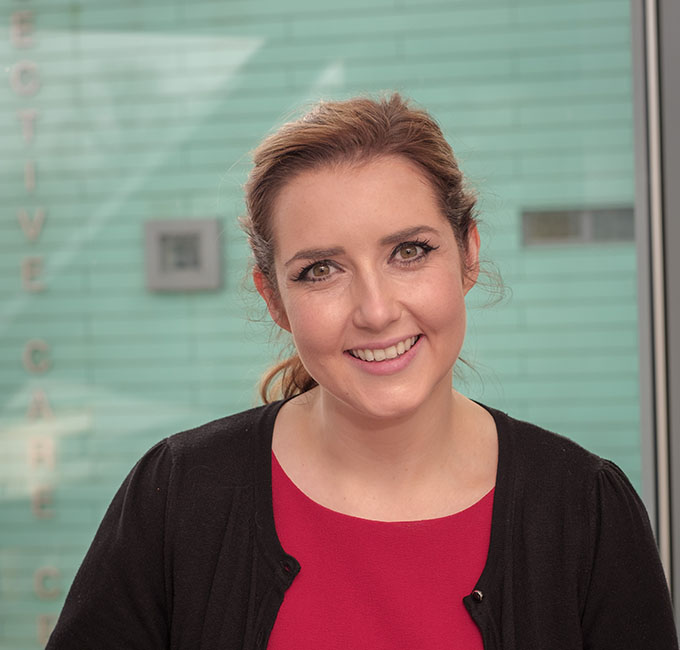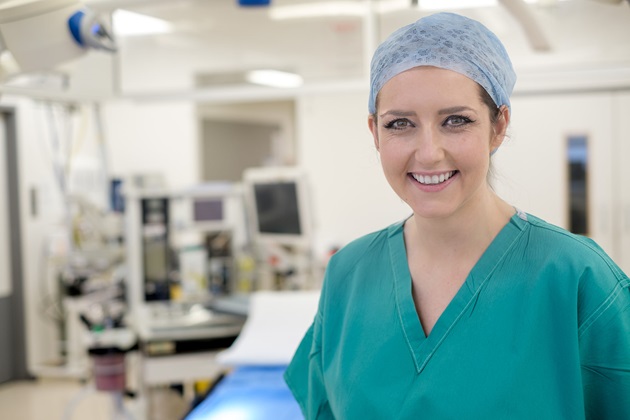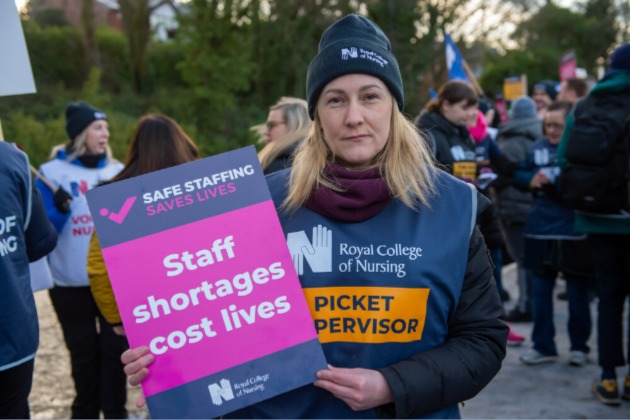Sara is one of just a few nurses to have advanced to the role of surgical care practitioner (SCP).
Though she’s been undertaking surgeries independently for several years, Sara is now increasing the complexity of her surgeries to include carpal tunnel decompressions and facial skin cancer excisions with skin flap or grafting if required.
“I see the role as bridging the gap between nursing and medicine,” says Sara, who after graduating, rapidly progressed from theatre practitioner to surgical first assistant in 2008.

From there she went on to do a Master’s degree in Advanced Nursing Practice, followed by surgical care practitioner training and since 2011 has been the only SCP at Aintree University Hospital in Liverpool.
I see the role as bridging the gap between nursing and medicine
“It was a chance to push my professional boundaries, bring all my experiences as a nurse and develop my skills in a different way,” says Sara. “Observing a hip replacement as a student was a key moment for me – it sparked my interest and set me on this track. I’ve always enjoyed working in theatre.”
Huge responsibility
When Sara first qualified as an SCP she worked in colorectal surgery, but now her time is split between maxillofacial surgery and the upper limb team in orthopaedics.
Her time working as a surgical assistant was, she says, beneficial in her career progression,
“It’s not like one day I was suddenly performing surgery – it’s been a journey of gradual independence. I do feel a responsibility, a huge responsibility, but that’s my job. Who doesn’t feel like that at the end of the day?”
Although the SCP role has been around for about 20 years, it’s still a rarity and there’s no official record of how many SCPs are working within the NHS.
“I’d definitely recommend the role if you love diversity in your work,” says Sara. “One day I will be in clinic, the next undertaking a surgical procedure.
“I especially like that with theatre you are able to focus on one patient at a time, and work with them every step of the patient pathway which isn’t always the case in all nursing specialties.”
It’s not like one day I was suddenly performing surgery – it’s been a journey of gradual independence
Sara is currently on secondment at the RCN and part of her work includes a focus on the national nursing career framework. She’s keen to promote the different pathways and opportunities available to nurses.
Sara says there is often misunderstanding about her role and what it entails. So what are useful attributes?
“Team working, flexibility, good communication skills and sound clinical knowledge are all important, as well as an understanding of personal limitations,” she says.
“I also work very closely with lead consultants in the same capacity as a junior doctor would. It is challenging, of course, but the rewards more than make up for it. I never get the Sunday night feeling – for that I feel very lucky.”
Words by Sophie Lowthian. Pictures by Ian Southerin.








